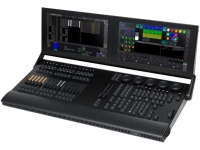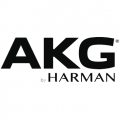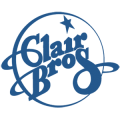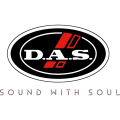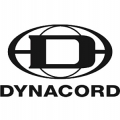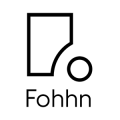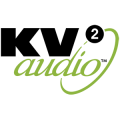ABOUT THE PRODUCT
ABOUT THE MANUFACTURER
GLOSSARY
M7CL-48
The M7CL series is a digital live-sound console that carries on the digital evolution from the acclaimed PM1DV2 and PM5D consoles.
The M7CL is familiar and comfortable to use, offering a level of convenience that overturns the preconception that "digital is difficult". A surprising range of functions that you would normally have to supply in the form of peripheral equipment is built in, and all of this is provided in a space that is dramatically less than an analog console of similar scope.
Yamaha`s Centralogic interface takes the most direct approach to giving you maximum operational ease and efficiency in a digital console. Rather than trying to simulate the feel and workflow of an analog mixer, Centralogic goes straight to the heart of the matter, simplifying digital operation to the point where it is actually as intuitive as analog ... if not easier.
A touch-panel display combined with Yamaha`s acclaimed selected channel concept and a straightforward navigation system no layers, one-function physical controls, and all digital controls can be accessed through just two main display screens lets you focus in on any operation directly and instantly. In fact, the entire 32-channel or 48-channel console can quite easily be operated from the 44.2-centimeter-wide (that`s a little over 17 inches) Centralogic section alone.
The M7CL is the ideal digital mixing console for medium size live sound applications that have previously been handled by analog gear.
Features
- 48 or 32 mono microphone/line inputs, 4 stereo inputs, and 3 mini-YGDAI card slots (a total of 56 or 40 mixing channels).
- 16 mix buses, LCR bus, 8 Matrix channels, and 8 DCAs assignable to 16 omni outputs.
- Virtual effect and EQ rack: up to 4 simultaneous multi-effect processors up to 8 simultaneous 31-band graphic EQs.
- Centralogic interface: central, logical, and intuitive.
- Dual power modes: use the built in Power Supply, or add an external PW800W Power Supply unit (optional) for failsafe dual-supply operation.
- Compact and lightweight: 48 channels in the space and weight normally required for 24.
Used Yamaha Pro Audio
Yamaha Pro Audio, Inc. is a company which is part of the Yamaha Corporation group. It offers a complete line of beginner professional audio products for the live sound and sound reinforcement markets. It has a long history of introducing significant products for the professional audio market such as the PM-1000 modular mixing console, the REV1 and SPX90 digital signal processors, and the 01, 02R, PM1D, PM5D, QL5, M7CL, CL5, and PM10/7 Rivage digital mixing consoles.
Yamaha products have received the most nominations in the area of technical achievement in the TEC Foundation TEC Awards 20-year history.
The first PM mixer manufactured by Yamaha was the PM200. Introduced in 1972, it was a monaural mixer with unbalanced inputs and outputs.
The PM400 was an upgraded mixer with a stereo bus and balanced inputs and outputs.The Yamaha PM1000 mixing console was a significant product in the professional audio industry because of its many advanced features and reasonable price. Introduced in 1974 it incorporated many innovative features such as a modular design using channel strips and output strips, a 4 bus design, and an output matrix mixer. Because it was manufactured by an established company it was readily accepted in many audio industries including sound reinforcement, recording, and audio for video. It also established a reputation for being rugged in the often abusive environment of touring sound reinforcement.
The PM2000 featured a hard chassis construction for rigidity and durability on the road. "One of the tests we are still using is our 'flight case test'. During prototyping we order a custom flight case - not even a very sturdy one - and place the console in it. The flight case is stood on end, and then tipped over in both directions and allowed to fall to the floor. If the console powers up immediately and works flawless after that ordeal, then it passes the test." The PM3000 was the first mixer to use voltage-controlled amplifiers (VCAs) in a mixer designed specifically for sound reinforcement. It used a custom VCA design using discrete hybrid ICs The PM4000 introduced stereo auxiliary buses and fully parametric Equalization on the input channels.
The PM5000 was a hybrid analog mixer with a digital control system which provided scene recall. In 1999, Yamaha debuted a first of its kind, all digital large format console, The PM1D system. With scalable I/O configuration the total channel count could be brought up to 320 mic inputs. Though, to achieve this impressive channel count, the system required multiple modular I/O boxes along with separate Digital Signal Processor(DSP) racks, power supply racks, and computer system engines.
Yamaha's next desk, the PM5D did away with the external rack system, reducing the channel count to 48 mic pres, and requiring only an external power supply unit. The Yamaha PM5D-RH(remote head-amp) was all of the functionality of a PM5D in a 10 space rack that only required a PM5D-RH control surface. In 2007, Yamaha won a Technical Grammy for its NS-10 studio monitor, a speaker that dominated the mixing of pop and rock music throughout the world for at least 20 years. The speaker was inducted into the Mix magazine TECnology Hall of Fame in 2008. The M7CL and its successor, the CL series are both among Yamaha's more affordable line. The CL Series was first to incorporate the Dante protocol. In 2014, Yamaha announced the release of a new PM series digital console, the PM10 Rivage system, equipped with Rupert Neve Designed "Silk" modeling pre-amps.
Professional used lighting equipment.| Professional second hand lighting equipment.| Professional pre owned lighting equipment.
Professional used audio equipment.| Professional second hand audio equipment.| Professional pre owned audio equipment.
Second hand audio gear. | Second hand lighting.
Pro audio equipment, second hand amplifiers, DJ, second hand sound systems, second hand Microphones, second hand Media Players.
Outdoor & Indoor LED screens for sale, LED mobile truck.
Light trussing, Gebrauchte Veranstaltungstechnik, used stage equipment Stage & Theatre lighting products.
Octave: The difference between two frequencies where one is twice the other. For example, 200 Hz is an octave higher than 100 Hz. 400 Hz is one octave higher than 200 Hz.
Optical Digital Cable: Fiber optic cable that transfers digital audio signals as light pulses.
Outcue/Outq/Out-Point: These words all refer to the final few seconds of audio signifying the conclusion of the production.
Package: A completed and fully edited audio piece.
Passive: Not active. A passive crossover uses no external power and results in insertion loss. A passive speaker is one without internal amplification.
Phase: Time relationship between signals; it’s all relative.
Power Output: A measure, usually in watts, of how much energy is modulated by a component.
Preamplifier: A control and switching component that may include equalization functions. The preamp comes in the signal chain before the amplifiers.
Pre Outs: Connectors that provide a line-level output of the internal preamp or surround processor.
Pre Outs/Main Ins: Connectors on a receiver that provide an interruptible signal loop between the output of the internal preamp or surround processor portion of the receiver and the input of the amplifier portion of the receiver.
Pre/Pro: A combination preamp and surround processor.
Processors: Anything that processes an incoming signal in some way. Surround processors, for example, can decode a Dolby Digital signal to send to an amp so you can hear it.
Pulse Code Modulation: (PCM) a way to convert sound or analog information to binary information (0s and 1s) by taking samples of the sound and record the resulting number as binary information. Used on all CDs, DVD-Audio, and just about every other digital audio format. It can sometimes be found on DVD-Video.
Q-and-A: Question and answer session.
Receiver: Any component that receives, or tunes, broadcast signals, be it NTSC, HDTV, DBS, or AM/FM radio. Typically refers to the single component that includes a preamp, surround processor, multichannel amplifier, and AM/FM tuner.
Reverberation: The reflections of sound within a closed space.
RF: Radio Frequency. Television signals are modulated onto RF signals and are then demodulated by your television’s tuner. VCRs and DBS receivers often include channel 3 or 4 modulators, allowing the output signal to be tuned by the television on those channels. Also, laser discs used an RF signal for modulating Dolby Digital 5.1 soundtracks on some movies. This requires an RF demodulator (usually referred to as an AC3-RF demodulator) before or in the surround processor to decode the signal.
RMS: Root Mean Square or the square root of the arithmetic mean (average) of the square’s set of values. A reasonably accurate method of describing an amplifier`s power output.
SACD: Super Audio CD. Enhanced audio format with up to six channels of high-resolution audio encoded using DSD. Requires an SACD player. Multichannel also requires a controller with six-channel analog or proprietary digital inputs for full playback.
Sampling Frequency: How often a digital sample is taken of an analog wave. The more samples taken, the more accurate the recording will be. You need to sample at a minimum of twice the highest frequency you want to capture. For example, the 44.1-kilohertz sampling rate of a CD cannot record sounds higher than 22.05 kilohertz.
Scener: A radio report in which the announcer is recorded at the same time and place as the background sound of an event.
Sensitivity: A measurement (in dB) of the sound-pressure level over a specified frequency range created by a speaker driven by 1 watt (2.83V at 8 ohms) of power with a microphone placed 1 meter away.
Signal-to-Noise Ratio: A comparison of the signal level relative to the noise level. Larger numbers are better.
Simultaneous Interpretation: This system allows attendees to hear the meeting in their own language.
Sound Bite: A portion of audio of someone speaking.
Sound field: The total acoustical characteristics of a space, such as ambience number, timing, and relative level of reflections; ratio of direct to reflected sound RT-60 time etc.
Soundstage: The area between two speakers that appears to the listener to be occupied by sonic images. Like a real stage, a soundstage should have width, depth, and height.
Speaker: A component that converts electrical energy into acoustical energy.
SPL: Sound-Pressure Level. Measured in dB.
Subwoofer: A speaker designed to reproduce very low bass frequencies, usually those below about 80 Hz.
THX: Certification program for home theater equipment. Uses some proprietary features, but mostly assures a base quality level for a given room size. (See THX select or Ultra.) Is compatible with any and all soundtrack formats. Stands for either Tom Holman’s eXperiment, after the engineer who drafted the original standard, or is named after the company’s founder George Lucas first movie, THX 1138. Nobody agrees on which.
THX select: Certification program for speakers and receivers that assures a base level of quality and performance when played in a room that’s between 2,000 and 3,000 cubic feet.
User-Generated Content (UGC): Text, photos, video or audio supplied by the customers of a company.
Voicer: A radio report without background audio taken from a scene or otherwise.
Wrap: A radio report containing both the reporter and an actuality.
Professional used lighting equipment.| Professional second hand lighting equipment.| Professional pre owned lighting equipment.
Professional used audio equipment.| Professional second hand audio equipment.| Professional pre owned audio equipment.
Second hand audio gear. | Second hand lighting.
Pro audio equipment, second hand amplifiers, DJ, second hand sound systems, second hand Microphones, second hand Media Players.
Outdoor & Indoor LED screens for sale, LED mobile truck.
Light trussing, Gebrauchte Veranstaltungstechnik, used stage equipment Stage & Theatre lighting products.

